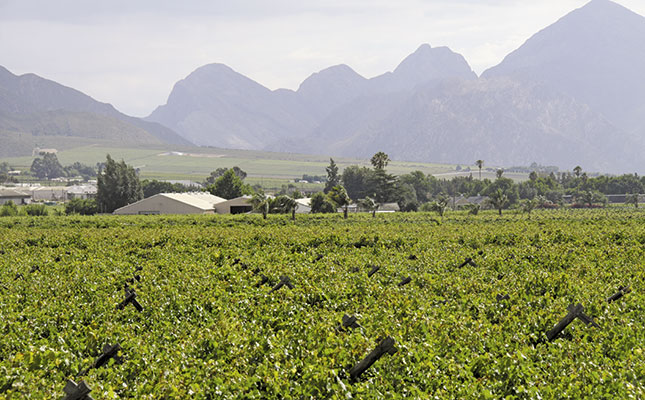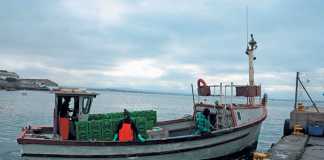
Photo: Jacques Claassen
After the USA, the Netherlands is the world’s biggest exporter of agricultural products. But a major portion of these exports derive from trade: the produce is imported into the Netherlands and then sold on to other countries in the EU as well as the rest of the world. Quite often, final packaging and value-adding takes place in the Netherlands.
READ:Red locusts a threat in Zambia, Zimbabwe
Against this background, it is not surprising that Dutch company, Jaguar, has decided to extend Milieukeur, the Dutch eco-label and certification scheme, to South Africa. Jaguar is one of the major importers of fresh produce in Europe. The only surprise, perhaps, is that it took so long. The obvious question that arises is this: won’t this be a duplication in broad terms of the numerous certification schemes already introduced in South Africa? (See Table 1)

Origin
Developed in 1992, Milieukeur has been rolled out in Germany, Belgium, Spain and Italy. South Africa is the first country outside the EU to which Milieukeur is being extended, but indications are that Brazil, Peru, India and Egypt will follow. Funded by the Dutch government, the Milieukeur pilot projects in the local table grape and citrus industries are already underway.
Dutch ambassador to South Africa, André Haspels, recently presented the first certificates to producers from four table grape farms at a ceremony on a Hex River Valley farm. Haspels pointed out that apart from areas such as water management, transport and logistics, agriculture was the fourth focus point for his country’s supporting role in South Africa.
“We would like to put a lot of emphasis on training and innovation. In Holland, we regard it as important that the public and private sectors build on a common agenda.
I’d like to see the South African government supporting the Milieukeur initiative on local fruit farms by creating an enabling environment for trade, financing training, etc,” he said. On behalf of Jaguar, Kees Rijnhout said the company was sourcing table grapes from 11 different countries and citrus from a variety of countries to meet demand throughout the year. A total of 28,7 million 4,5kg cartons of South African table grapes were exported to Europe in 2012/2013.
This represented 55% of total exports, according to statistics in a recent newsletter published by the country’s table grape industry, while exports to the UK amounted to 21,5%. In the first 11 months of last year, South Africa’s export of fresh fruit to the Netherlands alone amounted to R9 476 million (see Table 2). Niek Schelling, Agricultural Counsellor of the Kingdom of the Netherlands in South Africa, points out that table grapes constituted 21% of that amount, while the contribution from citrus was 38%.

According to Rijnhout, Jaguar was keen to source Milieukeur-certified grapes and citrus throughout the year. Asked whether this would result in a premium for local producers with Milieukeur certificates, Rijnhout admitted that it was unlikely that end- consumers in Europe would be willing to pay such a premium. But he added that such certification was nonetheless important, especially with European retailers raising questions about production practices in South Africa.
Therefore Jaguar, in conjunction with the Dutch government, had decided to extend Milieukeur to countries outside the EU. Asked whether Milieukeur duplicated existing certification schemes that require compliance with strict environmental and ethical standards, Rijnhout said the Dutch scheme would take GlobalGAP and Siza audits into account. Its environmental requirements, however, were more extensive.
He added that making the supply chain transparent would ensure easier market access for farmers. “Last year, during the strikes on farms near De Doorns, European supermarkets called me within half an hour to enquire about the produce we imported from South Africa. What retailers think remains important – it’s better to be as transparent as possible about production practices.”
Affordable
André Burger, owner of Consult@GAP, believes audits already introduced on farms are here to stay. “It’s valid to question where the list of audits will stop, but I reckon we are close to a saturation point and that we’ll see better co-operation in future between the various certification authorities,” he said. Burger pointed out that as a percentage of a fruit producer’s total input costs, the cost of audits were very small.
“The biggest advantage of audits is that a producer is actually saving if he adheres to certain standards and processes, while his workers will also be better trained. Moreover, his risks with regard to food safety will be much smaller, hygiene and controls will be much better, while he will be able to face any court, should traceability issues arise,” he said.
Phone Marietjie Franzsen at 021 860 3400 or email [email protected].
This article was originally published in the 28 February 2014 issue of Farmer’s Weekly.













